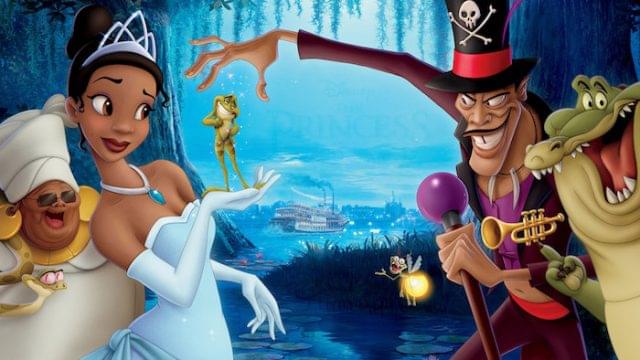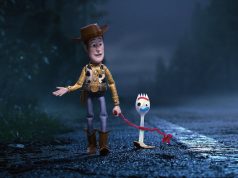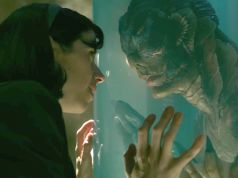
The people at Disney have been candid about their hopes that “The Princess and the Frog” — their first old-fashioned hand-drawn cartoon since 2004, and their first full-blown Broadway-style musical since 1998 — would recapture some of the magic that used to be associated with Disney animated films. But like the heroine in their story, the Disney folks knew it wasn’t enough to make a wish on the evening star — they needed to work hard, too.
And so it is that after drifting for the last several years through enjoyable but unremarkable computer-animated stories like “Meet the Robinsons” and “Chicken Little,” Disney literally went back to the drawing board. Under the guidance of Ron Clements and John Musker, who wrote and directed “The Little Mermaid” and “Aladdin,” a variation on the old “Frog Prince” fairy tale was devised, set in 1920s New Orleans and featuring all the old hallmarks of a Disney classic: magic spells, talking animals, princes, princesses, and plenty of singing. They got Randy Newman, whose New Orleans upbringing and Dixieland jazz style make him a perfect fit, to write the songs.
The result is an absolute delight, the first Disney film in well over a decade worthy of being mentioned in the same breath as “The Little Mermaid” and “Beauty and the Beast.” Some characters and situations are reminiscent (but not ripoffs) of “Cinderella,” “The Jungle Book,” and other tales from the Disney pantheon, but it has the feel of something new and invigorating, too. Funny, sweet, and perfectly pitched for both children and adults, it moves Disney animation into the 21st century without selling out its history.
Our heroine is Tiana (voice of Anika Noni Rose), a young black woman (Disney’s first!) whose lifelong goal has been to open her own restaurant. Determined to save up enough for the down payment, she works double shifts as a waitress, with no time for friends or fun, barely enough time to see her dear widowed mother (Oprah Winfrey).
For Mardi Gras, super-wealthy Big Daddy La Bouff (John Goodman) and his spoiled daughter, Charlotte (Jennifer Cody), longtime acquaintances of Tiana and her mother, are hosting a masquerade party. Expected to attend is Prince Naveen (Bruno Campos), a handsome, jazz-loving playboy from the nation of Maldonia (his accent puts it somewhere between Italy and Brazil), who’s visiting the Crescent City because his parents cut off his allowance and he wants to find a rich girl to marry.
Meanwhile, Dr. Facilier (Keith David), a deep-voiced voodoo practitioner called the Shadow Man by those who fear him, has sinister plans of his own. Pledging to give Prince Naveen and the prince’s valet, Lawrence (Peter Bartlett), what they want, he makes them a deal that results in Naveen being turned into a frog and Lawrence being transformed into a handsome prince, the better to woo lovely ladies with. Frog-Naveen, believing Tiana to be a princess when he hops up to her at the masquerade party, requests a kiss — which turns her into a frog, too. Whoops.
The rest of the film follows Naveen and Tiana’s odd-couple adventures through the bayous, where they dodge frog-eating creatures and befriend a trumpet-playing alligator named Louis (Michael-Leon Wooley). He tells them of Mama Odie (Jenifer Lewis), a blind old voodoo lady who works good magic, not the dark kind, and might be able to make them human again. Whereas Dr. Facilier gives people what they want and always has tricks up his sleeve, Mama Odie gives them what they actually need. Also involved is Ray (Jim Cummings), a Cajun firefly whose illuminated rump guides the way, the Deep South equivalent of Tinkerbell.
In customary Disney fashion, much attention is paid to the details: what people wore in New Orleans in the ’20s, what the buildings looked like, what the artistic styles were, the funny way Cajuns talk. There’s a “Streetcar Named Desire” reference, of course, because as soon as you see Tiana on the streetcar you want there to be one. Tiana and Naveen, both strong leading characters, become better people through their association with one another, perhaps falling in love in the process (spoiler alert?). The supporting characters are colorful and funny; the villain is appropriately nefarious (Keith David is well cast); the man-hungry rich girl is silly; the ending is happy.
There are enough subtle variations on the classic Disney model to let you know the filmmakers are aware of it, but not so many that the template is changed beyond recognition. Somehow, the result is both magically old-fashioned and wonderfully modern, the natural evolution of the heartwarming, rib-tickling, toe-tapping Disney treasures of yesteryear.
A- (1 hr., 37 min.; )





